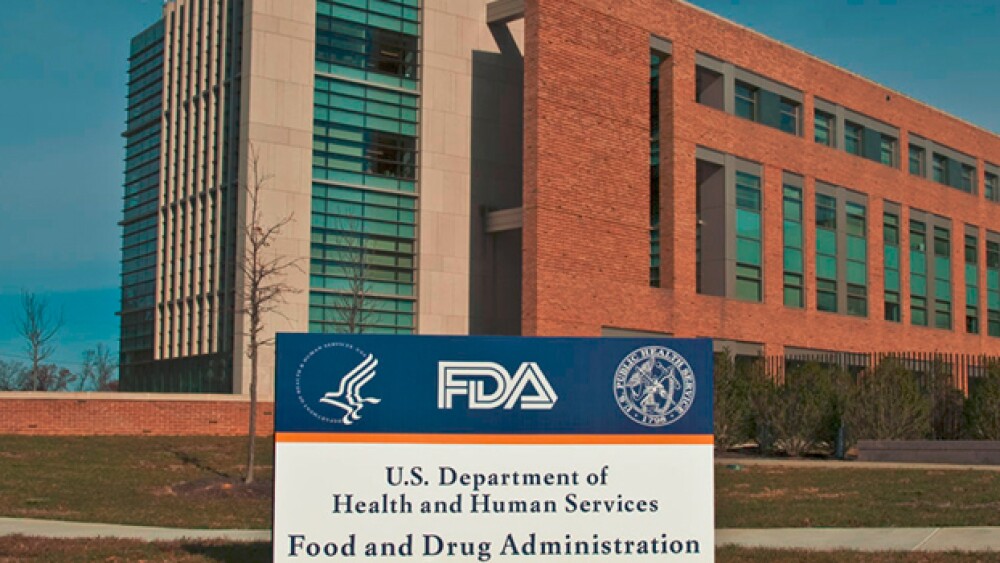As America continues to grapple with the opioid crisis, nonprofit advocacy group Public Citizen is calling for the U.S. Food and Drug Administration to place a moratorium on the approval of any new opioid medications.
As America continues to grapple with the opioid crisis, nonprofit advocacy group Public Citizen is calling for the U.S. Food and Drug Administration (FDA) to place a moratorium on the approval of any new opioid medications.
Raeford Brown, chair of the FDA’s Anesthetic and Analgesic Drug Products Advisory Committee and a supporter of the moratorium, said the call for a moratorium is made out of a sense of urgency given the opioid crisis that takes on average the lives of more than 117 Americans per day. Brown criticized the FDA’s response to the crisis.
“The mission of the FDA is to protect the public health. In the eyes of many experts, as it relates to opioids, they have failed,” Brown said in a statement.
The call, which was accompanied by a 24-page petition, was made in the wake of a changeup of leadership at the FDA. Commissioner Scott Gottlieb is stepping down at the end of the month after two years on the job. Ned Sharpless, the head of the National Cancer Institutes, is taking over as interim commissioner. While Gottlieb made addressing the opioid crisis a cornerstone of his tenure at the FDA, he was also criticized for the approval of Dsuvia, a powerful new sublingual opioid medication. In a defense of the agency’s decision following the approval, Gottlieb said the FDA should consider the approval of new opioid pain medications that can help fill targeted medical needs. Brown, who is also a professor of anesthesiology and pediatrics at the University of Kentucky, was an outspoken opponent of the Dsuvia approval.
Brown’s petition was supported by Sidney Wolfe, founder and senior adviser of Public Citizen’s Health Research Group and a previous member of the FDA’s Drug Safety and Risk Management Advisory Committee. On Thursday, Wolfe and Brown said the FDA should develop an “opioid regulatory framework to prevent a continuation of dangerous past FDA regulatory errors that have contributed to the opioid crisis in the U.S.” before the moratorium could be lifted.
Wolfe was highly critical of the FDA. He said the regulatory agency is an “important contributor to the current prescription opioid crisis because of its poor record” and can no longer be trusted to approve new opioids. He said the moratorium will allow for the FDA to design and implement a regulatory framework recommended by the National Academies of Sciences, Engineering, and Medicine in 2017. The FDA asked the National Academies to provide recommendations for a new regulatory framework for opioids in 2016. The National Academies found that the FDA had failed to adequately “incorporate public health considerations into opioid-related regulatory decisions,” Public Citizen said. If more opioids are approved before this framework is complete, Wolfe said it will guarantee “further opioid disasters and FDA culpability.”
The FDA has been too quick to approve opioids, Wolfe and Brown said. The agency approved 27 new or reformulated opioid analgesic medications between 2009 and 2015. In the statement issued by Public Citizen, the advocacy group pointed specifically to the approvals of Dsuvia and Endo Pharmaceuticals’ Opana ER. In 2011, the FDA approved a reformulated version of Opana ER that was supposed to be abuse-deterrent. Wolfe and Brown said there was “pre-approval evidence that it could easily be manipulated to facilitate intravenous abuse.” In 2015 the drug was linked to an outbreak of HIV in rural Indiana due to opioid abusers sharing needles. In 2017 the FDA called on Endo to remove Opana ER from the market, the first time the agency had taken steps to remove a current opioid product due to concerns over abuse.
In February, the FDA drafted new plans that will allow it to address past mistakes regarding the opioid crisis and “get ahead” of the situation that claims the lives of over 100 Americans per day. Gottlieb said the FDA intends to “make sure that we’re acting forcefully enough to address new threats that could extend this crisis.” Gottlieb said the agency has changed its approach to the opioid crisis and will take a more aggressive approach on regulatory actions.





